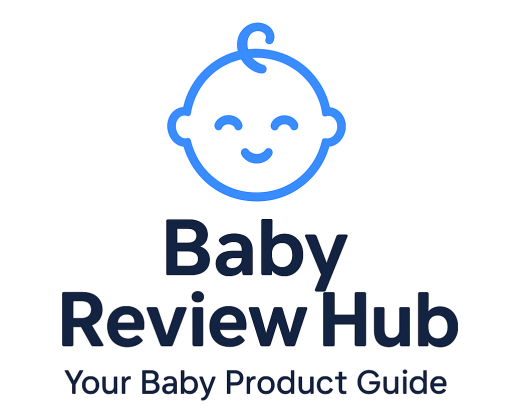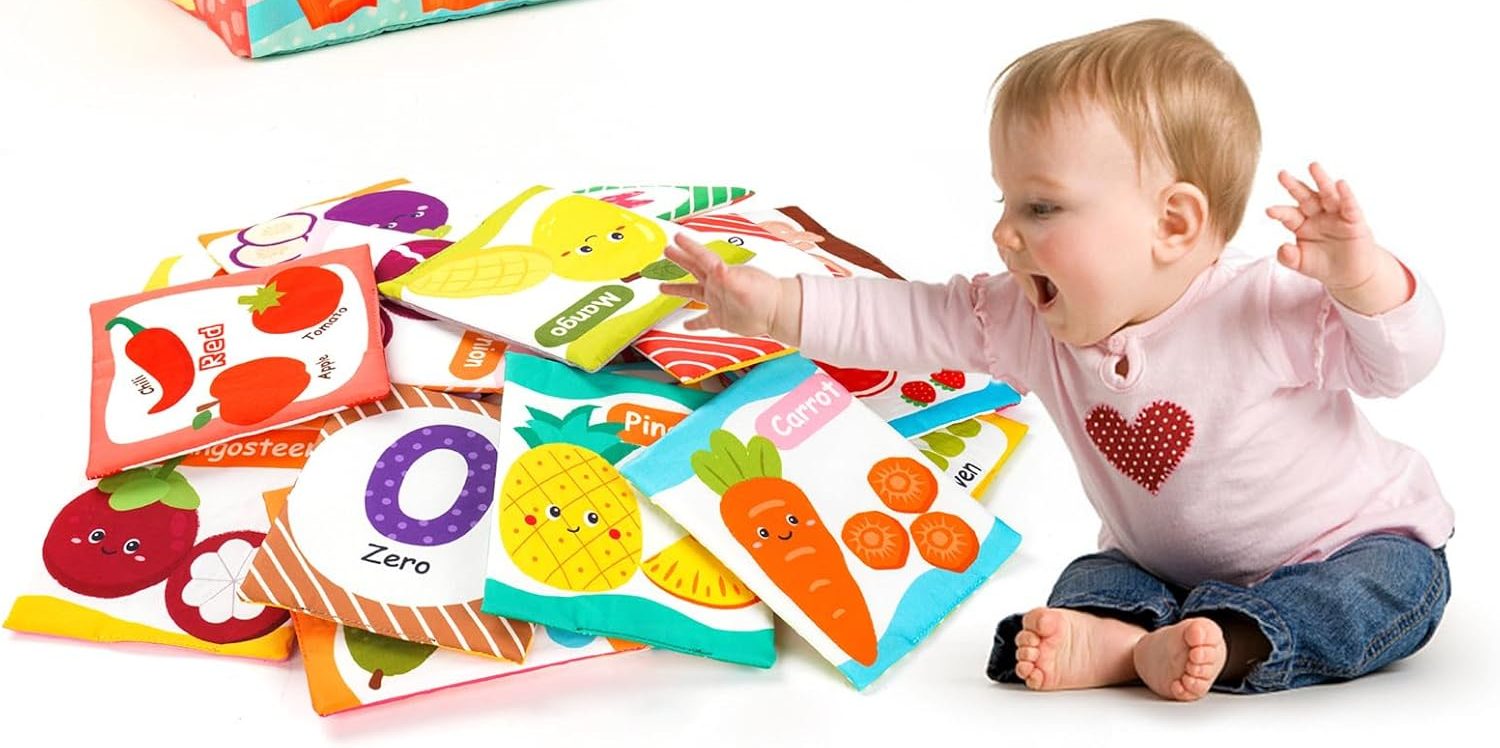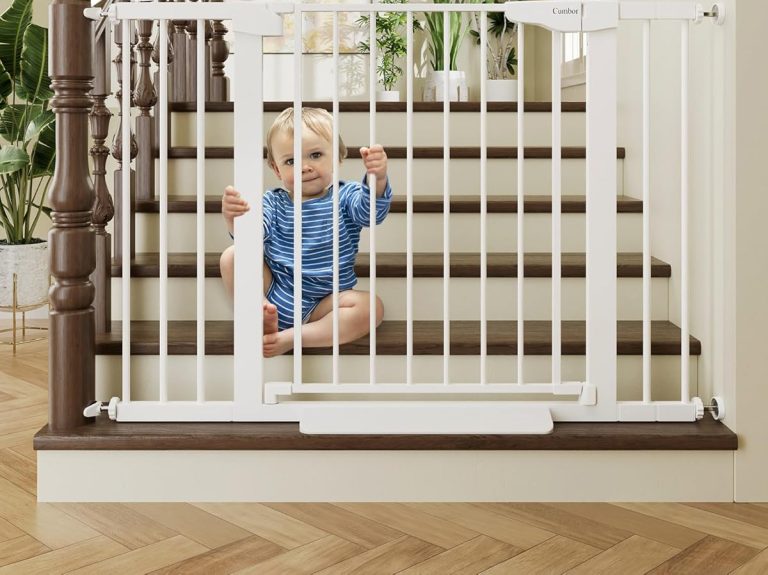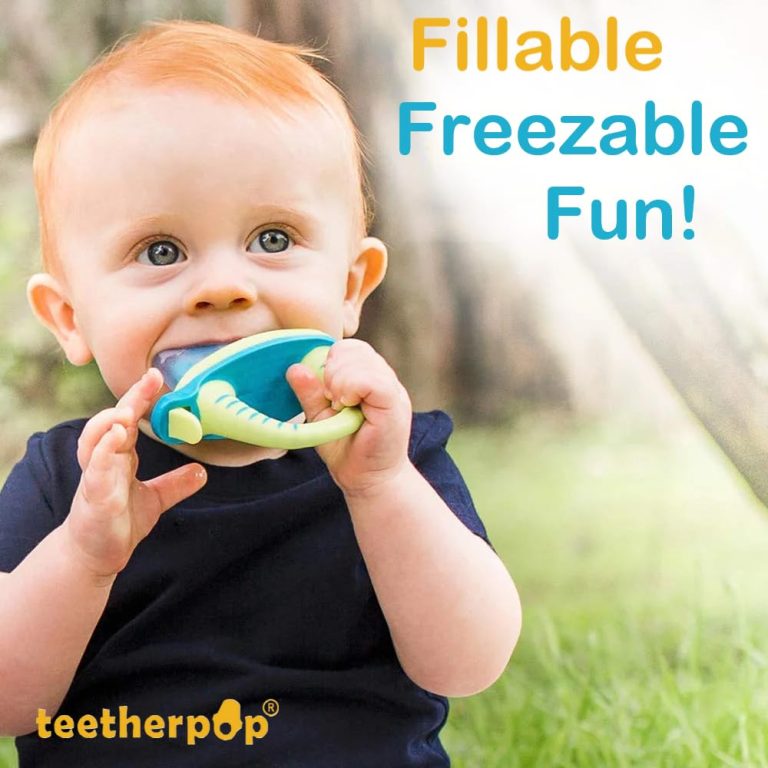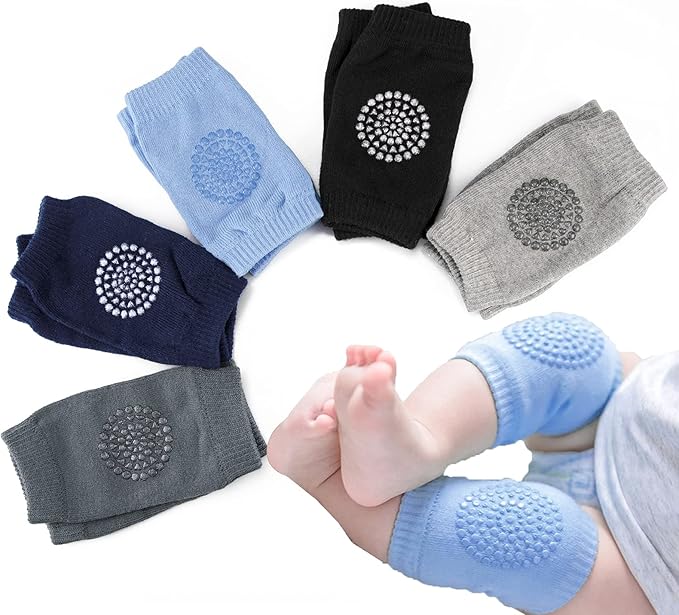When Do Babies Say Their First Words?
The Excitement of First Words
Few milestones in a baby’s development are as magical as hearing them say their very first word. For many parents, those first clear sounds — whether it’s “mama,” “dada,” or even a cheerful “hi” — feel like the beginning of a whole new chapter. This isn’t just a cute moment to record on your phone; it’s a major developmental step. A baby’s first word marks the start of true communication, where your little one begins to connect sounds with meaning and express their thoughts and feelings.
Naturally, this leads to one of the most common questions new parents ask: When do babies say their first word?
On average, babies say their first real word between 10 and 14 months of age. Some may speak a little earlier, and others may take a bit longer, but most fall within this range. It’s important to remember that this milestone doesn’t happen suddenly. The journey to a baby’s first word actually begins months earlier, with coos, babbles, and imitation of the sounds they hear every day.
Understanding the timeline of speech development can help parents know what to expect and how to encourage progress. From the earliest babbles to the first “mama,” here’s a closer look at:
The typical speech development timeline
Signs your baby is ready to say their first word
The most common first words babies say
Practical ways to encourage language development at home
By recognizing the small steps that lead up to this big milestone, parents can feel more confident, reassured, and excited as they wait for the day their baby finally says that unforgettable first word.
Key Take-Home Points
When do babies say their first word? Most babies speak a meaningful word between 10 and 14 months, though some may be earlier or later.
Speech begins before words. Coos, babbling, gestures, and sound imitation are all important steps leading up to the first word.
Common first words include “mama,” “dada,” “hi,” “bye,” “no,” and simple nouns like “ball” or “dog.” These words are short, repetitive, meaningful, and tied to daily routines.
Signs your baby is ready to talk include varied babbling, imitating tone, responding to their name, using gestures, and trying to copy sounds.
Parents can encourage language development by talking throughout the day, reading, singing, responding to babbles, and repeating simple words.
Speech delays are not always cause for alarm, but check with a pediatrician if by 18 months your child doesn’t use words, gestures, or respond to familiar voices.
Fun fact: Babies understand words before they speak them, and bilingual babies may start later but gain long-term language advantages.
Every child develops differently. Early talkers and late talkers can both be perfectly normal. What matters most is steady progress.
See other Baby Review Hub Articles.
When Do Babies Usually Say Their First Word?
For most parents, one of the biggest questions during the first year is: when do babies say their first word? While every child develops at their own pace, speech and language milestones generally follow a predictable timeline. Understanding these stages can help you know what to expect and reassure you that your little one is on track.
A Typical Language Development Timeline
6–9 Months: Babbling Begins
At this stage, babies love experimenting with sounds. You’ll hear repetitions like “ba-ba,” “ma-ma,” or “da-da.” These babbles aren’t true words yet, but they are the building blocks of speech. Your baby is learning how to control their mouth, tongue, and vocal cords while mimicking the rhythms of real conversation.
10–14 Months: The First Real Word
This is the stage most parents eagerly anticipate. On average, babies say their first true word between 10 and 14 months. Unlike earlier babbles, these words are meaningful and consistent — for example, saying “mama” specifically for mom or “ball” while pointing to a toy. This is the milestone that answers the question: when do babies usually say their first word?
15–18 Months: Vocabulary Growth
Once the first word arrives, things often move quickly. By 18 months, many toddlers know 10–20 words or more. They may point to familiar people, objects, or animals and attempt to name them. Repetition plays a big role here — the more often they hear a word, the more likely they are to use it themselves.
18–24 Months: Short Phrases Appear
By their second birthday, toddlers often start stringing two words together. Phrases like “more milk,” “bye-bye daddy,” or “no bed” show that your child is beginning to combine words to express needs, desires, and emotions more clearly.
Parent Reminder: Every Baby Is Unique
It’s natural to compare your child’s progress with others, but remember: language development varies widely. Some babies are early talkers, speaking words before their first birthday, while others may wait until closer to 15–16 months. Both can be perfectly normal. What matters most is steady progress over time, not hitting milestones on the exact date.
Common First Words Babies Say
When parents wonder “when do babies say their first word,” they’re often just as curious about what that first word will be. While every child is unique, certain words consistently appear at the top of the list because they’re simple, meaningful, and frequently heard in a baby’s environment.
Classic First Words
Mama / Dada
It’s no surprise that “mama” and “dada” are among the most common baby first words. Parents are central figures in a baby’s world, and the repetitive “m” and “d” sounds are easy for little mouths to practice. For many families, hearing one of these words for the first time is an emotional milestone.
Hi / Bye
Greetings are short, clear, and often repeated throughout the day, making them easy for babies to mimic. Many little ones will wave and say “hi” or “bye” as some of their earliest attempts at social interaction.
No
Toddlers love this powerful little word. “No” is easy to pronounce and often used by parents, which means babies hear it frequently. It quickly becomes a favorite for asserting independence.
Ball / Dog / Cat
Everyday objects and family pets often inspire a baby’s first meaningful words. Simple nouns like “ball,” “dog,” or “cat” give babies a way to point, name, and connect words with their surroundings.
Uh-oh
Playful and expressive, “uh-oh” is one of the most common early exclamations. Babies love its rhythm and the fun reaction it gets from adults. Plus, it’s useful for those many moments when something gets dropped on the floor!
Why These Words Come First
Parents often wonder why “mama” or “dada” seem to appear before more complex words. The truth is, the most common first words share a few important traits that make them easier for babies to say and remember.
1. They’re short and repetitive
Sounds like “ma-ma” and “da-da” are simple for babies to form with their developing speech muscles. Repetition helps babies practice over and over until the sound sticks. That’s why many baby’s first words are made up of repeating syllables.
2. They’re emotionally meaningful
It’s no coincidence that names for parents, pets, or favorite objects show up early. Babies are far more motivated to say words that connect to the people and things they love most. A first word like “mama” isn’t just practice — it’s a way for your child to bond and communicate with you.
3. They’re tied to daily routines
The words babies hear most often are the ones they’re most likely to repeat. Greetings like “hi” or “bye” get reinforced every day. Objects like “ball” or “milk” are constantly part of play and mealtimes. Because these words come with context and repetition, babies learn to use them quickly.
The Connection to Timing
When parents ask, “when do babies say their first word,” the answer usually depends on how much exposure a child has to these simple, meaningful, and routine-based words. A baby who hears “mama” dozens of times a day is more likely to say it sooner than a baby who hears it only occasionally.
By understanding why certain words come first, you can create more opportunities for your little one to hear and practice the words that matter most — making that magical first word more likely to happen between 10 and 14 months.
Signs Your Baby Is Ready to Talk
Long before you hear that magical first “mama” or “dada,” babies show clear signs that they’re getting ready to talk. These early clues are part of the journey that leads up to the exciting milestone most parents ask about: when do babies say their first word?
Early Indicators of Speech Readiness
1. Babbling with Variety
Around 6–9 months, babies move from simple vowel sounds (“ahh,” “ohh”) to more complex babbles like “ba-ba,” “da-da,” and “ma-ma.” When your baby starts stringing together different sounds, it’s a sign their mouth muscles and brain are preparing for real words.
2. Copying Tone and Rhythm
Even if they don’t yet understand words, babies often mimic the rise and fall of your voice. If you speak in an excited tone, they may “reply” with a similar pitch. This imitation shows they’re tuning into the rhythm of language.
3. Using Gestures
Gestures like waving, clapping, or pointing often come before first words. For example, a baby might wave “bye-bye” while making a sound, laying the groundwork for combining words with actions.
4. Responding to Their Name
By around 9 months, many babies turn when you call their name. This recognition signals that they’re making the connection between sounds and meaning — a key step toward saying their first word.
5. Trying to Copy Sounds
Babies love to imitate the world around them. They may try to mimic the family dog’s bark, the beep of a toy, or the way you say “hello.” These playful attempts show they’re practicing the building blocks of speech.
The Bridge Between Sounds and Words
Babies often combine sounds with gestures before they form full words. For example, your little one might point to a cup and say “ba” — an early attempt at “bottle.” These moments are signs that your baby is on the path to real speech, even if the words aren’t fully clear yet.
Recognizing these early signs can help parents feel confident that their child is moving in the right direction. And when you’re wondering “when do babies say their first word,” keep in mind that these small steps are all part of the process leading up to that exciting 10–14 month milestone.
How to Encourage Your Baby’s First Words
Parents play a huge role in shaping their child’s early language development. While it’s natural to wonder “when do babies say their first word,” you can actually help set the stage for that exciting milestone with a few simple, everyday practices. The goal is to surround your baby with meaningful sounds, words, and responses that encourage them to connect language with the world around them.
1. Talk Throughout the Day
Narrate your daily routines in real time. For example, say: “I’m pouring your milk,” or “Here’s your teddy bear.” By hearing words paired with actions, your baby begins to understand that sounds represent objects, people, and events. The more consistent exposure they get, the sooner they’ll attempt their first words.
2. Read Together
Reading picture books is one of the best ways to expand vocabulary and spark curiosity. Choose simple board books with bright images, and point to objects while naming them clearly: “This is a cat. The cat says meow.” Babies who are read to regularly often reach their first-word milestone earlier than those who aren’t.
3. Sing Songs & Rhymes
Songs and nursery rhymes are not only fun but also highly effective for speech development. The repetition and rhythm in classics like “Itsy Bitsy Spider” or “Twinkle, Twinkle, Little Star” make it easier for babies to recognize patterns in language. Singing together also strengthens bonding and keeps learning playful.
4. Respond to Babbling
Treat your baby’s babbles as the start of a conversation. If your child says “ba-ba,” you might reply with: “Yes, that’s your ball!” Responding enthusiastically encourages back-and-forth communication, teaching babies that their sounds have meaning and value. This step is critical on the road to their first real word.
5. Use Simple, Repeated Words
Stick to clear, consistent words your baby hears often — like “milk,” “dog,” or “bye.” Repetition builds familiarity, making it easier for babies to attempt saying the word themselves. Over time, this practice helps transform simple sounds into recognizable speech.
Bonus Tip: Create a Language-Rich Environment
Surround your baby with opportunities to hear and practice words. Talk to them during walks, involve them in family conversations, and encourage siblings or caregivers to do the same. The more exposure they have to language, the more confident they’ll become in trying out their very first word.
What If My Baby Isn’t Talking Yet?
It’s natural for parents to compare milestones, especially when wondering “when do babies say their first word.” But just as some babies walk earlier or later than others, speech development also varies widely. Many late talkers catch up on their own, while others may need extra encouragement or professional support.
When to Check with Your Pediatrician
While a wide range of timing is normal, you may want to consult your pediatrician or a speech-language pathologist if, by around 18 months, your baby:
Doesn’t say at least a few recognizable words (such as “mama,” “dada,” or names of familiar objects).
Rarely gestures (pointing, waving, or shaking their head).
Doesn’t respond to their name or recognize familiar voices.
Shows limited interest in communicating through sounds, gestures, or facial expressions.
These can be signs of a potential speech delay or another developmental issue that’s worth discussing with a professional.
Why Early Intervention Matters
If concerns are identified, early intervention can make a big difference. Pediatricians may recommend hearing checks, speech therapy, or developmental assessments to ensure your child gets the right support at the right time. Many children who start speech therapy early go on to meet communication milestones and thrive.
Reassurance for Parents
Most importantly, don’t panic if your child hasn’t said their first word right at 12 months. Many babies reach this milestone closer to 14–15 months, and that’s still perfectly normal. The key is watching for steady progress — babbling, gestures, and attempts at communication — even if clear words take a little longer to appear.
Fun Facts About Baby Speech Development
Speech development is full of surprises, and understanding these little facts can make the wait for your baby’s first word even more exciting. While parents often ask “when do babies say their first word,” the journey to speech is more fascinating — and sometimes more complex — than it seems.
1. Bilingual Babies May Start Later
If your household speaks two languages, your baby might take a little longer to say their first recognizable word. That’s because they’re processing twice the vocabulary and sound patterns. The good news? Bilingual babies often go on to develop stronger long-term language skills and greater cognitive flexibility.
2. Babies Understand Before They Speak
Even before their first word, babies are busy soaking up meaning. By around 9–10 months, many infants already understand simple words like “no,” “bye-bye,” or “milk.” So don’t be surprised if your baby reacts correctly to familiar phrases months before they can say them aloud.
3. Gestures Predict Words
Gestures such as pointing, waving, or lifting arms to be picked up are strong predictors of language growth. Babies who use gestures consistently often transition more smoothly into spoken words. For example, pointing at a dog while making sounds may soon turn into the word “doggy.”
4. Not All First Words Are “Mama” or “Dada”
While those are the most common, some babies surprise their parents with unique first words. It might be the name of a pet, a favorite toy, or even an expressive “uh-oh.” Each baby’s first word is special because it reflects what matters most in their little world.
5. Early Talkers vs. Late Talkers Are Both Normal
Some babies say their first word closer to 9–10 months, while others may wait until 14–15 months. Both fall within the normal range. What matters is steady progress — from babbling to gestures to attempts at real communication.
Parent Tips for Language Development
While every child reaches milestones at their own pace, parents can make a big difference in how smoothly language develops. If you’ve ever wondered “when do babies say their first word,” these everyday strategies can help set the stage for that exciting moment while supporting long-term communication skills.
1. Limit Screen Time
Babies learn best from real-life interaction, not from TV shows, phones, or tablets. The American Academy of Pediatrics recommends minimal screen time under age two, except for video chats with loved ones. Instead, focus on face-to-face conversation, storytelling, and play.
2. Model Good Speech
While “baby talk” may be fun, research shows that babies benefit most from hearing clear, well-formed sentences. Speak slowly and clearly, using full words: “Here is your blanket,” instead of “blankie-boo.” This helps your baby connect sounds with real vocabulary they’ll eventually repeat.
3. Encourage Siblings to Join In
Older brothers and sisters often become natural language teachers. They can read books aloud, sing songs, or simply talk to the baby during playtime. Babies are more likely to try new words when surrounded by siblings who model communication in fun, engaging ways.
4. Celebrate Small Steps
Every babble, clap, gesture, or attempt at a word is progress worth celebrating. Show excitement when your baby tries to communicate — even if it’s not a perfect word yet. Positive reinforcement builds confidence and encourages more attempts, which eventually lead to that magical first word.
5. Keep It Fun and Interactive
Language learning doesn’t have to feel like a lesson. Play peek-a-boo, sing nursery rhymes, or point to objects during daily routines. When language feels fun, babies are more motivated to engage and practice.
FAQs: Babies’ First Words
1. When do babies say their first word?
Most say their first word with meaning between 10–14 months.
2. When do babies usually say “mama” or “dada”?
Around 9–12 months — sometimes earlier as babbling, but later with true meaning.
3. How many words should a 1-year-old say?
Typically 1–3 clear words by 12 months.
4. Can babies talk at 6 months?
Not in meaningful words. At this age, babies are babbling but not attaching meaning yet.
5. How can I help my baby say their first word?
Talk often, read daily, sing, and repeat simple words in context.
Conclusion: The Joy of First Words
Hearing your baby say their first word is an unforgettable experience — one that signals the start of a lifetime of communication. While most babies speak around 12 months, language development begins much earlier through babbling, gestures, and imitation.
The key is to engage, talk, read, and sing with your baby often. Every interaction builds their vocabulary and confidence. And remember, whether your little one says “mama,” “dada,” or surprises you with something completely different, their first word will be one of the sweetest sounds you’ll ever hear.
So relax, enjoy the journey, and celebrate each milestone. The first word is just the beginning of many conversations you’ll share together.
